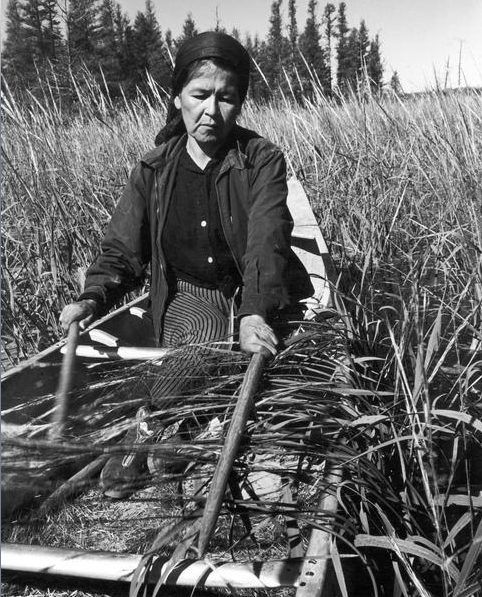Wild Rice and where not to grow it
Posted: 2016-03-25 07:55pm
This is the grain of Zizania palustris commonly known as Wild Rice and Indian Rice...

...said plant is native to northern North America. For thousands of years native peoples have exploited it as a food source and in the 20th century it has been domesticated and commercially cultivated. Many people enjoy it, but recently there has been a problem in regards to where it is currently being produced. This is how wild rice has traditionally been harvested.

...A guy with a canoe paddles by, moves the stocks of the the plant over the side with sticks and beats it, which causes the grain to fall into the bottom of the aforesaid canoe. Wild rice is a plant which grows in wetlands and lakes and in water about 15 to 90 cm deep. Now if you are in Canada this is not so much of a problem, we got a lot of lakes. The problem is that someone got the bright idea to grow lots of it in California. Currently there is about 6,500 hectares of wild rice being cultivated in California. Setting up a wild rice farm in California means flooding fields, flooding said fields to a minimal depth of 15cm means those 6,500 hectares require some 9,750,000,000 liters of water, with more being pumped in to replace that which runs off or evaporates in an area of the US which is at the best of times on the dry side of things.
It seems to me if the Californians want to reduce their water consumption axing the cultivation of wild rice would be a good way to go.
Zor

...said plant is native to northern North America. For thousands of years native peoples have exploited it as a food source and in the 20th century it has been domesticated and commercially cultivated. Many people enjoy it, but recently there has been a problem in regards to where it is currently being produced. This is how wild rice has traditionally been harvested.

...A guy with a canoe paddles by, moves the stocks of the the plant over the side with sticks and beats it, which causes the grain to fall into the bottom of the aforesaid canoe. Wild rice is a plant which grows in wetlands and lakes and in water about 15 to 90 cm deep. Now if you are in Canada this is not so much of a problem, we got a lot of lakes. The problem is that someone got the bright idea to grow lots of it in California. Currently there is about 6,500 hectares of wild rice being cultivated in California. Setting up a wild rice farm in California means flooding fields, flooding said fields to a minimal depth of 15cm means those 6,500 hectares require some 9,750,000,000 liters of water, with more being pumped in to replace that which runs off or evaporates in an area of the US which is at the best of times on the dry side of things.
It seems to me if the Californians want to reduce their water consumption axing the cultivation of wild rice would be a good way to go.
Zor
